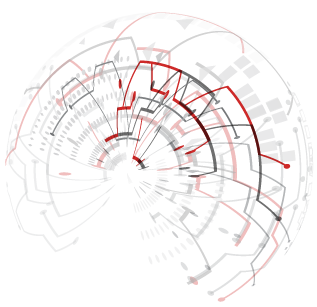A Crisis, A Partner, The Opportunity: Accelalpha Guide to Supply Chain Resilience
The fact is, if you are a supply chain professional in the 2020s then there are only two possibilities regarding your business. Either your business has just completed a total technology transformation, or you are about to embark on one. That’s it. There is no third path. Any other choice is a choice for obsolescence in an increasingly disruptive world. Covid-19 has stormed through the marketplace and laid bare the discrepancies among business processes and the gaps between supply and demand.

Accelalpha Guide to Supply Chain Resilience

Download PDF Version And before Covid-19 there were trade wars, and there was Brexit, and there were hurricanes, and there were fires. Basically, the last five years brought disaster after disaster – disruption after disruption – and most businesses held things together with scotch tape and crossed fingers because supply chains were considered cost centers that needed to be managed as efficiently as possible. But then Covid-19 arrived and it made it clear that 2020 would be different; 2020 would be a clutch year. In fact, according to Fortune, so far this year, 94% of Fortune 1000 companies have reported a disruption to their supply chain. The fact is, the way business has been getting done cannot continue, and any discrepancies between manufacturers and customers needs to be mollified. Supply chains have to mature. They have to evolve from being cost centers to being business differentiators. For over a decade now, Oracle has been building a cloud-based, seamless, end-to-end supply chain solutions that place customers at the center. And as an Oracle Certified Cloud Excellence Implementer, Accelalpha has performed numerous successful implementations of their software. If a person were to look at companies that are the most successful today, they would find that the most successful ones are the same ones that spent that last five years transforming their industries by relying on modern cloud-based solutions to become more adaptable and resilient to change. Accelalpha played a large role in getting some of these companies to a new level of maturity. As a leader in solving critical business challenges through a unique combination of industry insight, cloud application depth and an unmatched level of implementation experience and industry domain expertise, Accelalpha partnered with Fortune 1000 clients across a range of industries and worked collaboratively with our clients to develop holistic solutions tailored to their unique needs. In the fall of 2020, we interviewed key practitioners of the Accelalpha team as well as technologists from our technology partner, Oracle, to discuss what resiliency means to them and what the path toward resiliency looks like. Here is what we learned:

Resilience Defined
According to Alfonso Ibanez, Accelalpha’s Logistics WMS Practice Partner, resilience can be defined as how well a company is prepared to manage unexpected events and how efficiently a supply chain can react and adjust their processes to keep orders fulfilled without affecting end customers. “If you can fulfill a customer’s request during any unexpected event, then you have resilience!” Oracle technologists have a similar definition. Jeff Stiles, VP of Product Marketing states, “Supply chain resiliency is defined by the ability to adapt – the ability to flexibly source, more accurately sense demand and align supply chain execution with shorter planning cycles.” All interviewees agree that in the pre-Covid-19 world supply chain leaders may have nodded in agreement with this definition, but rarely acted on it. “It was only sophisticated organizations or those who had been burned and knew first-hand that a Plan B was critical that were making this investment,” says Derek Gittoes, VP of SCM Product Strategy at Oracle.
Undertaking the Resilience Journey
Once it became clear that supply chains had to pivot quickly to meet a rapidly changing operating environment, businesses began investing in updating their technologies to cloud based solutions that could make them nimbler and more reactive. But, a supply chain is big and it impacts a lot of things, so where should a business begin? According to Srini Rajagopal, Senior Director of Logistics Product Strategy at Oracle, ”Companies should look at the supply chain from when a product is manufactured all the way through settlement. They should look at storage and transportation costs and see how those can be reduced.” “Covid-19 was a tipping point. Today – resiliency is black or white. Either you go for it or you shut down your business in two or three years,” says Alfonso Ibanez. “Culture, leadership, the desire to want to make the change. If the CIO and CFO are not on board then it will never happen.” Culture and especially leadership are a big part of getting started on a resilience journey – and leadership begins with the courage of decision makers to make the change. Jeff Stiles, VP of Product Marketing at Oracle stated it clearly, “Leadership is needed, and so is courage – including the courage to establish common processes where it makes sense. I say courage because everybody thinks they are unique. Customers tell us that standardizing their business practices is a key to being able to quickly adapt to changing business and market conditions. According to Manoj Turlapati, Logistics Practice Partner at Accelalpha, “You need to look at culture and make sure everyone on the team understands what the overall goal is for organization and that if the organization benefits from the evolution everyone does. It is a key part of change management.” In addition to accepting the need for change and presenting ideas to the organization, according to Trevor Hildebrand, Accelalpha VP of Consulting Services, what is required is “a thorough review of current processes and an evaluation of existing technologies and tools to help understand where the gaps are from a technology tool perspective and filling those gaps with the right solution.” Summing up the ideas from our practitioners and technologists – here is the Accelalpha path for businesses undertaking a transformation journey:
- Establish a culture of leadership and socialize the need for change
- Determine and prioritize the fragile areas in a supply chain and identify ways to standardize business process leveraging best practices
- Commit to a technology transformation and select and leverage available cloud-based solutions and technology that are enablers
- Select a technology partner and team with deep domain expertise and experience and a track record of successfully configuring tools and processes
- Focus on change management to help move your organization along the journey to supply chain resilience
A Partner Who Knows the Terrain
Make no mistake – there are plenty of pitfalls. However, almost all of them have to do with change management and the depth of domain and technology expertise. Most supply chains have been doing things a certain way for thirty years or they have bespoke solutions for standard problems. By working with a partner who is aware of industry best practices and knows how to leverage technology a lot of the customizations that create havoc when things go wrong can be bypassed. “The best partners can design road maps for your business. They can point out the opportunities. They know how to adapt the best industry standards. There’s a lot of change management involved in updating a supply chain and a good partner can help navigate that,” says Ibanez. “Partners bring intellectual capital to a project,” says Stiles. “Ultimately, Oracle is a service provider. We build software. Partners are key at actually mapping success and solutions. They are responsible for that. They differentiate based on their capabilities to deliver and their competencies, knowledge, and experience in industries and domains.” “Evaluate the people,” recommends Gittoes. “What is the experience of the people your partner would bring? Have they done this kind of work before? You are buying experience, and people who knew what the pitfalls are, are the ones you want. Taking shortcuts to save a few dollars means you’ll pay for it twice. Why pay for it twice?” At Accelalpha our management team is made up of supply chain industry experts with decades of experience in their respective fields. Many of our consultants boast an average of more than 10 years of industry experience with multiple full cycle project implementations under their belt. We are committed to helping clients achieve supply chain resiliency and this is the first in a series of articles and webinars where we will be informing and educating the industry on how to navigate this journey successfully. Signup below to be notified about our upcoming webinar on supply chain resiliency in 2021. Signup

